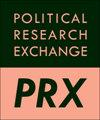Love is blind. Partisanship and perception of negative campaign messages in a multiparty system
IF 1.8
Q2 POLITICAL SCIENCE
引用次数: 7
Abstract
ABSTRACT We study how partisanship influences the perception of directed campaign statements of varying polarity and sentiment strength. Using a crowdsourced survey experiment with German participants, we find asymmetrical perceptual biases. Partisan respondents perceive negative campaigning from or about a party they favour, as less negative than non-partisans. The discounting effect applies particularly for voters with stronger preferences and for messages that are more strongly negative. Partisan preferences only weakly influence the perception of neutral or positive campaign statements. The discounting biases found for negative statements point at limits of negative campaigning effects in electoral contests. Different effects for weakly and strongly worded messages substantiate concerns that dichotomous approaches to negative campaigning could miss important variation in party communication and its effects.爱是盲目的。党派之争和对多党制中负面竞选信息的认知
摘要:我们研究党派关系如何影响不同极性和情绪强度的定向竞选声明的感知。通过对德国参与者的众包调查实验,我们发现了不对称的感知偏差。有党派倾向的受访者认为来自或关于他们所支持的政党的负面竞选活动比无党派的人更消极。这种折现效应尤其适用于那些有强烈偏好的选民,以及那些负面信息更为强烈的选民。党派偏好只会微弱地影响中立或积极竞选言论的感知。对负面言论的贴现偏见指出了选举中负面竞选效应的局限性。措辞弱和措辞强烈的信息所产生的不同影响证实了人们的担忧,即对消极竞选的两分法可能会错过政党沟通及其影响的重要变化。
本文章由计算机程序翻译,如有差异,请以英文原文为准。
求助全文
约1分钟内获得全文
求助全文

 求助内容:
求助内容: 应助结果提醒方式:
应助结果提醒方式:


